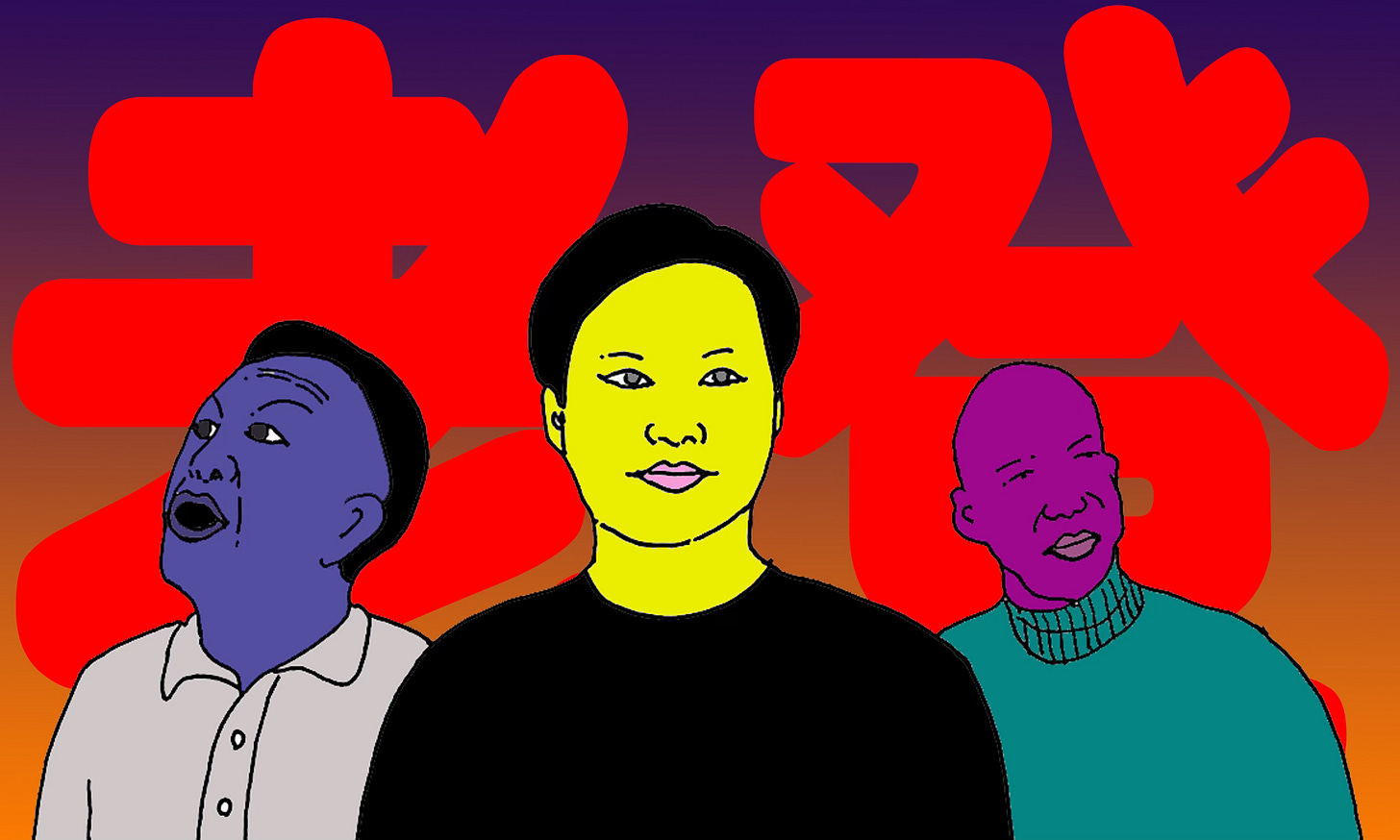"Out of touch middle-aged men" — Phrase of the Week
A new internet slang phrase is born

Our phrase of the week is: “out of touch middle-aged men” (老登 lǎo dēng)
Context
Lei Jun (雷军), founder of mobile phone maker Xiaomi and one of China’s most popular entrepreneurs, is facing a backlash because of a recent high-profile speech.
Since 2020, Lei has given an annual public speech around this time of year. His stories of entrepreneurial struggle have always struck a chord with young people.
This year, his much-anticipated speech completely missed the mark. He talked about hardships and struggles, as always. But one thing he said upset a lot of people.
He compared the pressures of building Xiaomi’s two new tech businesses (EVs and chips) to something he assumed everyone in China could relate to: putting two kids through college at the same time.
The metaphor didn’t land well. It came across as completely out of touch. Because how can a tech billionaire whose company is worth 1.4 trillion yuan (nearly $200 billion dollars) empathise with ordinary people struggling to fund education for their kids?
Many of his fans responded with comments like this:
For the ordinary working-class, this billionaire’s attempt to “keep it real” and play the victim felt more like a cringeworthy performance by an out of touch middle-aged man.
Awkward, and inauthentic.
对于工薪普通人来说,富豪这波“接地气”卖惨,更像一场老登的表演秀,没有真诚,只有不适。
Duìyú gōngxīn pǔtōng rén lái shuō, fùháo zhè bō “jiē dìqì” mài cǎn, gèng xiàng yì chǎng lǎodēng de biǎoyǎn xiù, méiyǒu zhēnchéng, zhǐyǒu búshì.
And with that, we have our Sinica Phrase of the Week.
What it means
“Out-of-touch middle-aged man” is how we translate a new internet slang phrase that’s recently gained traction in China.
The direct translation makes no sense: “old” (老 lǎo) + “climbing” (登 dēng).
But in this context, the two characters mean something different. The phrase originally comes from Northeastern Chinese dialect, where 登 (dēng) is a derogatory term for a “man” who behaves inappropriately or sleazily. Put together, the two characters (老登) mean “sleazy old man”. It’s normally said with a rolling northern “er” sound: lǎo dē’er (老登儿).
Recently, internet users have given laodeng new meaning: middle-aged or older men who are successful but arrogant and disconnected from reality (but there’s no sleaziness implied).
Over the last year, especially in recent months, the phrase has become extremely popular. Variations have already started circulating. Phrases like “out-of-touch-middle-aged-man-ism” (老登文学) and “out-of-touch-macho films” (老登电影) describe male-dominated, chauvinistic, outdated works that appeal primarily to older male audiences.
The phrase builds on earlier terms describing problematic male behaviour like: “patronising men” (爹味), which you could also translate as “dad-ness” or even “mansplaining”; and “average but confident men” (普信男)—mediocre men with disproportionately high self-regard, a phrase made famous by female stand-up comic Yang Li (杨笠 Yáng Lì) in 2020.
But this latest label of laodeng captures something slightly different. Lei Jun’s misstep perfectly exemplifies it: he’s a billionaire trying to relate to ordinary people’s struggles but coming across as completely tone-deaf.
He’s a textbook laodeng.
Andrew Methven is the author of RealTime Mandarin, a resource which helps you bridge the gap to real-world fluency in Mandarin, stay informed about China, and communicate with confidence—all through weekly immersion in real news. Subscribe for free here.
Read more about how Laodengs like Lei Jun are being discussed in the Chinese media right now:
China has a new slang word for “middle-aged men” (laodeng = Lei Jun)
Restaurant chain under fire for over-priced meals (laodeng = Jia Guolong)
How the Arc’teryx fireworks fiasco is being discussed in China (laodeng = Cai Gouqiang)


